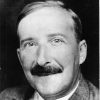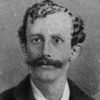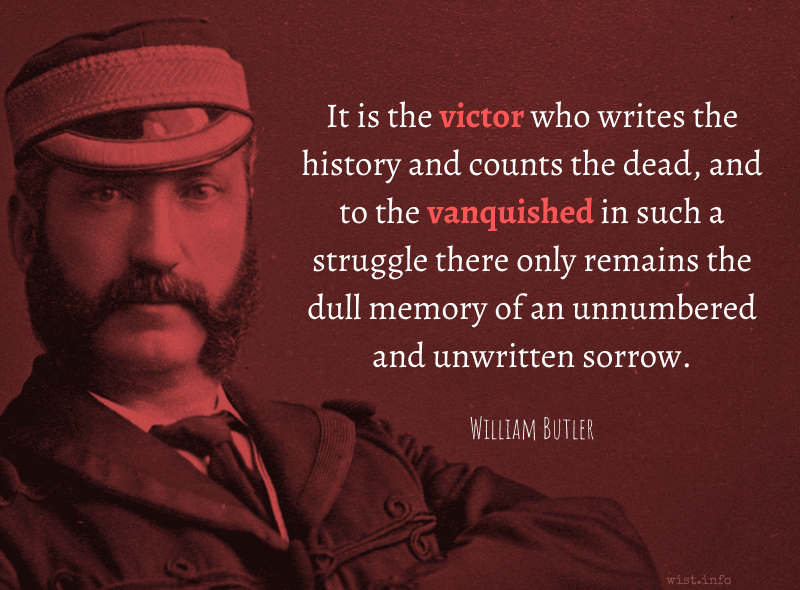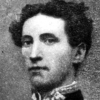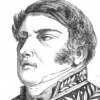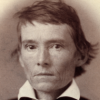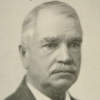There are two cinemas: the films we have actually seen and the memories we have of them. The gap between the two widens over the years.
Molly Haskell (b. 1939) American feminist film critic and author.
From Reverence to Rape: The Treatment of Women in the Movies (3rd ed, 2016; orig 1973)
(Source)
Quotations about:
history
Note not all quotations have been tagged, so Search may find additional quotes on this topic.
History, we know, is apt to repeat herself, and to foist very old incidents upon us with only a slight change of costume.
George Eliot (1819-1880) English novelist [pseud. of Mary Ann Evans]
Janet’s Repentance, ch. 10 (1859)
(Source)
At the moment, for example, in 1984 (if it was 1984), Oceania was at war with Eurasia and in alliance with Eastasia. In no public or private utterance was it ever admitted that the three powers had at any time been grouped along different lines. Actually, as Winston well knew, it was only four years since Oceania had been at war with Eastasia and in alliance with Eurasia. But that was merely a piece of furtive knowledge which he happened to possess because his memory was not satisfactorily under control. Officially, the change of partners had never happened. Oceania was at war with Eurasia: therefore Oceania had always been at war with Eurasia. The enemy of the moment always represented absolute evil, and it followed that any past or future agreement with him was impossible.
George Orwell (1903-1950) English writer [pseud. of Eric Arthur Blair]
Nineteen Eighty-Four, ch. 3 (1949)
(Source)
History, indeed, is like a picture gallery in which there are few originals and many copies.
[On voit que l’histoire est une galerie de tableaux où il y a peu d’originaux et beaucoup de copies.]
Alexis de Tocqueville (1805-1859) French writer, diplomat, politician
The Old Regime and the Revolution [L’Ancien régime et la Révolution], Book 2, ch. 6 (1856) [tr. Gilbert (1955)]
(Source)
Alternate translations:
History, it is easily perceived, is a picture-gallery containing a host of copies and very few originals.
[tr. Bonner (1856)]
One sees that history is an art gallery where there are few originals and many copies.
[tr. Kahan]
History is a gallery of pictures in which there are many copies and few originals.
Nothing I accept about myself can be used against me to diminish me.
Audre Lorde (1934-1992) American writer, feminist, civil rights activist
“Eye to Eye: Black Women, Hatred, and Anger,” Sister Outsider: Essays and Speeches (1984)
(Source)
Historians can sometimes explain, or at any rate discuss the immediate causes of some great event. Beyond that they can do little more than arrive at the platitude that every generation is, to some extent, responsible for what happened afterwards. In this way, we can finally reach the preposterous conclusion that the ancient Romans were responsible for the First World War, when they failed to civilize the Germans. This is sometimes called learning from history.
A. J. P. Taylor (1906-1990) British historian, journalist, broadcaster [Alan John Percivale Taylor]
“What Else Indeed?” New York Review of Books (5 Aug 1965)
(Source)
In the popular imagination, the belief persists that history involves little more than reconstruction, a retelling of the past “as it actually was.” But historical understanding involves far more than mere empiricism; it demands a readiness to draw back from the facts to reflect on their significance and their interconnection.
Peter E, Gordon (b. 1966) American intellectual historian
“Why Historical Analogy Matters,” New York Review of Books (7 Jan 2020)
(Source)
The past exudes legend: one can’t make pure clay of time’s mud. There is no life that can be recaptured wholly; as it was. Which is to say that all biography is ultimately fiction.
Contumely always falls upon those who break through some custom or convention. Such men, in fact, are called criminals. Everyone who overthrows an existing law is, at the start, regarded as a wicket man. Long afterward, when it is found that this law was bad and so cannot be re-established, the epithet is changed. All history treats almost exclusively of wicked men who, in the course of time, have come to be looked upon as good men. All progress is the result of successful crimes.
Friedrich Nietzsche (1844-1900) German philosopher and poet
The Dawn [Morgenröte], sec. 20 (1881) [Mencken (1907)]
(Source)
Alternate translations:
We have to make good a great deal of the contumely which has fallen on all those who, by their actions, have broken through the conventionality of some custom -- such people generally have been called criminals. Everybody who overthrew the existing moral law has hitherto, at least in the beginning, been considered a wicked man; but when afterwards, as sometimes happened, the old law could not be re-established and had to be abandoned, the epithet was gradually changed. History almost exclusively treats of such wicked men who, in the course of time, have been declared good men.
[tr. Volz (1903)]
One has to take back much of the defamation which people have cast upon all those who broke through the spell of a custom by means of a deed -- in general, they are called criminals. Whoever has overthrown an existing law of custom has hitherto always first been accounted a bad man: but when, as did happen the laws could not afterwards be reinstated and this fact was accepted, the predicate gradually changed -- history treats almost exclusively of these bad men who subsequently became good men!
[tr. Hollingdale (1997)]
The nation faces forward. It is made and remade every day. If we believe that the nation resides in the orderly recitations of history given to us by our leaders, then our story is over.
Timothy Snyder (b. 1969) American historian, author
The Red Prince, “Orange: European Revolutions” (2008)
(Source)
History is not a catalogue but a version of events … a convincing version of events. If an historian is any good, he is convinced by his own version of events and then tries to put this conviction across.
A. J. P. Taylor (1906-1990) British historian, journalist, broadcaster [Alan John Percivale Taylor]
“The view from Twisden Rd.”, interview by Duncan Fallowell, The Spectator (28 May 1983)
(Source)
The past, which as always did not know the future, acted in ways that ask to be imagined before they are condemned. Or even simplified.
All citizens do have a measure of control, at least in democracies where their votes are counted, of how they belong to their nations. Perhaps they will have more confidence in unconventional choices if they see that each nation’s founders were disobedient and unpredictable, men and women of imagination and ambition. The steel of every national monument was once molten.
Timothy Snyder (b. 1969) American historian, author
The Red Prince, “Orange: European Revolutions” (2008)
(Source)
Like common law, the moral imagination works by precedent and example. We are all equipped with an inherited archive of historical events that serves as the background for everything that occurs. Especially when we are confronted with new events that test the limits of moral comprehension, we call upon what is most familiar in historical memory to regain our sense of moral orientation. We require this archive not only for political judgment, but as the necessary horizon for human experience.
Peter E, Gordon (b. 1966) American intellectual historian
“Why Historical Analogy Matters,” New York Review of Books (7 Jan 2020)
(Source)
Our task as historians is to make past conflicts live again; not to lament the verdict or to wish for a different one. It bewildered me when my old master A. F. Pribram, a very great historian, said in the nineteen-thirties: “It is still not decided whether the Habsburg monarchy could have found a solution for its national problems.” How can we decide about something that did not happen? Heaven knows, we have difficulty enough in deciding what did happen. Events decided that the Habsburgs had not found a solution for their national problems; that is all we know or need to know. Whenever I read the phrase: “whether so-and-so acted rightly must be left for historians to decide,” I close the book; the writer has moved from history to make-believe.
A. J. P. Taylor (1906-1990) British historian, journalist, broadcaster [Alan John Percivale Taylor]
Trouble Makers: Dissent Over Foreign Policy 1792-1939 (1957)
(Source)
Yet if states were destroyed, local institutions corrupted, and economic incentives directed towards murder, few of us would behave well. There is little reason to think that we are ethically superior to the Europeans of the 1930s and 1940s, or for that matter less vulnerable to the kind of ideas that Hitler so successfully promulgated and realized.
Timothy Snyder (b. 1969) American historian, author
Black Earth: The Holocaust as History and Warning, “Conclusion” (2015)
(Source)
Men write history for the same reason they write poetry, study the properties of numbers, or play football — for the joy of creation; men read history for the same reason they listen to music or watch cricket — for the joy of appreciation.
A. J. P. Taylor (1906-1990) British historian, journalist, broadcaster [Alan John Percivale Taylor]
“The Historian,” Manchester Guardian (5 Aug 1938)
(Source)
Hence it is that, though in every age everybody knows that up to his own time progressive improvement has been taking place, nobody seems to reckon on any improvement during the next generation. We cannot absolutely prove that those are in error who tell us that society has reached a turning point, that we have seen our best days. But so said all before us, and with just as much apparent reason.
Thomas Babington Macaulay (1800-1859) English writer and politician
“Southey’s Colloquies on Society,” Edinburgh Review (1830)
(Source)
Review of Robert Southey, Sir Thomas More; or, Colloquies on the Progress and Prospects of Society (1829).
The great armies, accumulated to provide security and preserve the peace, carried the nations to war by their own weight.
A. J. P. Taylor (1906-1990) British historian, journalist, broadcaster [Alan John Percivale Taylor]
The First World War: A Illustrated History, ch. 1 (1963)
(Source)
All the livid steeds of the Apocalypse have stormed through my life — revolution and famine, inflation and terror, epidemics and emigration. I have seen the great mass ideologies grow and spread before my eyes — Fascism in Italy, National Socialism in Germany, Bolshevism in Russia, and above all else that arch-plague nationalism which has poisoned the flower of our European culture.
Stefan Zweig (1881-1942) Austrian novelist, playwright, journalist, biographer
The World of Yesterday [Die Welt von Gestern], Preface (1942)
(Source)
Alternate translation [Sonnenfeld]:
All the pale horses of the apocalypse have stormed through my life, revolution, starvation, devaluation of currency and terror, epidemics, emigration; I have seen the great ideologies of the masses grow and spread out before my eyes. Fascism in Italy, National Socialism in Germany, Bolshevism in Russia, and, above all, that arch-pestilence, nationalism, which poisoned our flourishing European culture.
“Inevitability” is a magic word with which to mesmerize the unwary. Only death is inevitable. Short of that, nothing is inevitable until it happens, and everything is inevitable once it has happened. The historian deals with past events and therefore to him all history is inevitable. But these past events were once in the future, and then they were not inevitable.
No war is inevitable until it breaks out.
A. J. P. Taylor (1906-1990) British historian, journalist, broadcaster [Alan John Percivale Taylor]
The Struggle for Mastery in Europe 1848-1918, ch. 22 (1954)
(Source)
It is tempting to say that a Nazi murderer is beyond the pale of understanding. […] Yet to deny a human being his human character is to render ethics impossible. To yield to this temptation, to find other people inhuman, is to take a step toward, not away from, the Nazi position. To find other people incomprehensible is to abandon the search for understanding, and thus to abandon history.
Timothy Snyder (b. 1969) American historian, author
Bloodlands: Europe Between Hitler and Stalin, “Conclusion” (2010)
(Source)
In my opinion, most of the great men of the past were only there for the beer — the wealth, prestige and grandeur that went with the power.
A. J. P. Taylor (1906-1990) British historian, journalist, broadcaster [Alan John Percivale Taylor]
“Fiction in History,” Times Literary Supplement (23 Mar 1973)
Reprinted in his Essays in English History (1976).
It is important to remember that events now long in the past were once in the future.
F. W. Maitland (1850-1906) English legal historian and jurist [Frederic William Maitland]
(Attributed)
A favorite saying of A. J. P. Taylor's which he used repeatedly in his writings, attributing it to Maitland. It is sometimes erroneously attributed to Taylor. Variant: "It is very had to remember that events now long in the past were once in the future"
People think that stories are shaped by people. In fact, it’s the other way around.
In retrospect, though many were guilty, none was innocent. The purpose of political activity is to provide peace and prosperity; and in this every statesman failed, for whatever reason. This is a story without heroes, and perhaps even without villains.
A. J. P. Taylor (1906-1990) British historian, journalist, broadcaster [Alan John Percivale Taylor]
The Origins of the Second World War, ch. 1 (1961)
(Source)
The present enables us to understand the past, not the other way round.
A. J. P. Taylor (1906-1990) British historian, journalist, broadcaster [Alan John Percivale Taylor]
“The Radical Tradition: Fox, Paine, and Cobbett,” The Trouble Makers: Dissent over Foreign Policy, 1792-1939 (1969)
(Source)
In my opinion we learn nothing from history except the infinite variety of men’s behaviour. We study it, as we listen to music or read poetry, for pleasure, not for instruction.
A. J. P. Taylor (1906-1990) British historian, journalist, broadcaster [Alan John Percivale Taylor]
“The Radical Tradition: Fox, Paine, and Cobbett,” The Trouble Makers: Dissent over Foreign Policy, 1792–1939 (1969)
(Source)
Throughout our nervous history, we have constructed pyramidic towers of evil, ofttimes in the name of good. Our greed, fear and lasciviousness have enabled us to murder our poets, who are ourselves, to castigate our priests, who are ourselves. The lists of our subversions of the good stretch from before recorded history to this moment. We drop our eyes at the mention of the bloody, torturous Inquisition. Our shoulders sag at the thoughts of African slaves lying spoon-fashion in the filthy hatches of slave-ships, and the subsequent auction blocks upon which were built great fortunes in our country. We turn our heads in bitter shame at the remembrance of Dachau and the other gas ovens, where millions of ourselves were murdered by millions of ourselves. As soon as we are reminded of our actions, more often than not we spend incredible energy trying to forget what we’ve just been reminded of.
Maya Angelou (1928-2014) American poet, memoirist, activist [b. Marguerite Ann Johnson]
“Facing Evil,” Interview by Bill Moyers (1982)
(Source)
It is the victor who writes the history and counts the dead, and to the vanquished in such a struggle there only remains the dull memory of an unnumbered and unwritten sorrow.
William Butler (1838-1910) Irish British Army officer, writer, adventurer
Charles George Gordon, ch. 1 (1891)
(Source)
History gets thicker as it approaches recent times: more people, more events, and more books written about them. More evidence is preserved, often, one is tempted to say, too much. Decay and destruction have hardly begun their beneficent work.
A. J. P. Taylor (1906-1990) British historian, journalist, broadcaster [Alan John Percivale Taylor]
English History 1914-1945, “Revised Bibliography” (1965)
(Source)
The history is right perhaps, but let us not forget, it was written by the victors.
[L’histoire est juste peut-être, mais qu’on ne l’oublie pas, elle a été écrite par les vainqueurs.]
Alexis Guignard, comte de Saint-Priest (1805-1851) French diplomat and historian
History of Royalty [Histoire de la Royauté] (1842)
(Source)
More books have resulted from somebody’s need to write than from anybody’s need to read.
Ashleigh Brilliant (b. 1933) Anglo-American epigramist, aphorist, cartoonist
Pot-Shots, #3273
(Source)
He [Napoleon III] was what I often think is a dangerous thing for a statesman to be — a student of history, and like most of those who study history, he learned from the mistakes of the past how to make new ones.
A. J. P. Taylor (1906-1990) British historian, journalist, broadcaster [Alan John Percivale Taylor]
“Mistaken Lessons from the Past,” The Listener (6 Jun 1963)
(Source)
The new constitution has put at rest, forever, all the agitating questions relating to our peculiar institution — African slavery as it exists amongst us — the proper status of the negro in our form of civilization. This was the immediate cause of the late rupture and present revolution. […] The prevailing ideas entertained by [Jefferson] and most of the leading statesmen at the time of the formation of the old constitution, were that the enslavement of the African was in violation of the laws of nature; that it was wrong in principle, socially, morally, and politically. It was an evil they knew not well how to deal with, but the general opinion of the men of that day was that, somehow or other in the order of Providence, the institution would be evanescent and pass away. […] Our new government is founded upon exactly the opposite idea; its foundations are laid, its corner-stone rests upon the great truth, that the negro is not equal to the white man; that slavery — subordination to the superior race — is his natural and normal condition. This, our new government, is the first, in the history of the world, based upon this great physical, philosophical, and moral truth.
Alexander Stephens (1812-1883) American lawyer, politician, Confederate States Vice-President (1861-65)
“Cornerstone Speech,” Savannah (21 Mar 1861)
(Source)
On the foundation of the government of the Confederate States of America.
Caution in handling generally accepted opinions that claim to explain whole trends of history is especially important for the historian of modern times, because the last century has produced an abundance of ideologies that pretend to be keys to history but are actually nothing but desperate efforts to escape responsibility.
Hannah Arendt (1906-1975) German-American philosopher, political theorist
The Origins of Totalitarianism, Part 1, ch. 1 “Antisemitism as an Outrage to Common Sense” (1951)
(Source)
The primary aim of propaganda is, of course, to influence contemporary opinion, but those who rewrite history do probably believe with part of their minds that they are actually thrusting facts into the past. When one considers the elaborate forgeries that have been committed in order to show that Trotsky did not play a valuable part in the Russian civil war, it is difficult to feel that the people responsible are merely lying. More probably they feel that their own version was what happened in the sight of God, and that one is justified in rearranging the records accordingly.
George Orwell (1903-1950) English writer [pseud. of Eric Arthur Blair]
“Notes on Nationalism” (May 1945)
(Source)
Such closet politicians never fail to assign the deepest motives for the most trifling actions; instead of often ascribing the greatest actions to the most trifling causes, in which they would be much seldomer mistaken. They read and write of kings, heroes, and statesmen, as never doing any thing but upon the deepest principles of sound policy. But those who see and observe kings, heroes and statesmen, discover that they have headaches, indigestions, humours, and passions, just like other people; every one of which, in their turns, determine their wills, in defiance of their reason.
Lord Chesterfield (1694-1773) English statesman, wit [Philip Dormer Stanhope]
Letter to his son, #205 (5 Dec 1749)
(Source)
History is thought of largely in nationalist terms, and such things as the Inquisition, the tortures of the Star Chamber, the exploits of the English buccaneers (Sir Francis Drake, for instance, who was given to sinking Spanish prisoners alive), the Reign of Terror, the heroes of the Mutiny blowing hundreds of Indians from the guns, or Cromwell’s soldiers slashing Irishwomen’s faces with razors, become morally neutral or even meritorious when it is felt that they were done in the “right” cause. If one looks back over the past quarter of a century, one finds that there was hardly a single year when atrocity stories were not being reported from some part of the world; and yet in not one single case were these atrocities — in Spain, Russia, China, Hungary, Mexico, Amritsar, Smyrna — believed in and disapproved of by the English intelligentsia as a whole. Whether such deeds were reprehensible, or even whether they happened, was always decided according to political predilection.
George Orwell (1903-1950) English writer [pseud. of Eric Arthur Blair]
“Notes on Nationalism” (May 1945)
(Source)
That’s what history is. It’s a conversation between the past and the present.
Lewis H. Lapham (b. 1935) American writer and editor
“The Art of Editing No. 4,” The Paris Review (Summer 2019)
(Source)
A nationalist is one who thinks solely, or mainly, in terms of competitive prestige. He may be a positive or a negative nationalist — that is, he may use his mental energy either in boosting or in denigrating — but at any rate his thoughts always turn on victories, defeats, triumphs and humiliations. He sees history, especially contemporary history, as the endless rise and decline of great power units, and every event that happens seems to him a demonstration that his own side is on the upgrade and some hated rival is on the downgrade.
George Orwell (1903-1950) English writer [pseud. of Eric Arthur Blair]
“Notes on Nationalism” (May 1945)
(Source)
Don’t let it be forgot
That once there was a spot
For one brief shining moment that was known
As Camelot.Alan Jay Lerner (1918-1986) American dramatist, lyricist, composer
“Finale Ultimo (Camelot Reprise)” [Arthur], Camelot(1960; 1967)
(Source)
Based on T.H. White, The Once and Future King (1958).
Nobody knows what is going to happen because so much depends on an enormous number of variables, on simple hazard. On the other hand if you look at history retrospectively, then, even though it was contingent, you can tell a story that makes sense. … Jewish history, for example, in fact had its ups and downs, its, enmities and its friendships, as every history of all people has. The notion that there is one unilinear history is of course false. But if you look at it after the experience of Auschwitz it looks as though all of history — or at least history since the Middle Ages — had no other aim than Auschwitz. … This, is the real problem of every philosophy of history how: is it possible that in retrospect it always looks as though it couldn’t have happened otherwise?
Hannah Arendt (1906-1975) German-American philosopher, political theorist
Interview with Roger Errera (Oct 1973), The New York Review of Books (26 Oct 1978)
(Source)
The most important things to remember about backstory are that (a) everyone has a history and (b) most of it isn’t very interesting. Stick to the parts that are, and don’t get carried away with the rest. Life stories are best received in bars, and only then an hour or so before closing time, and if you are buying.
A dogma is the hand of the dead on the throat of the living.
Lemuel K. Washburn (1846-1927) American freethinker, writer
Is the Bible Worth Reading and Other Essays (1911)
(Source)
There are inquiries in which scanty evidence is worth using. We may not be able to get certainty, but we can get probability, and half a loaf is better than no bread.
C. S. Lewis (1898-1963) English writer, literary scholar, lay theologian [Clive Staples Lewis]
“Historicism,” The Month (1950-10)
(Source)
Regarding historical inquiry based on incomplete evidence. First reprinted in Christian Reflections (1967).
Culture, the acquainting ourselves with the best that has been known and said in the world, and thus with the history of the human spirit.
Any historian of warfare knows it is in good part a comedy of errors and a museum of incompetence; but if for every error and every act of incompetence one can substitute an act of treason, many points of fascinating interpretation are open to the paranoid imagination. In the end, the real mystery, for one who reads the primary works of paranoid scholarship, is not how the United States has been brought to its present dangerous position but how it has managed to survive at all.














